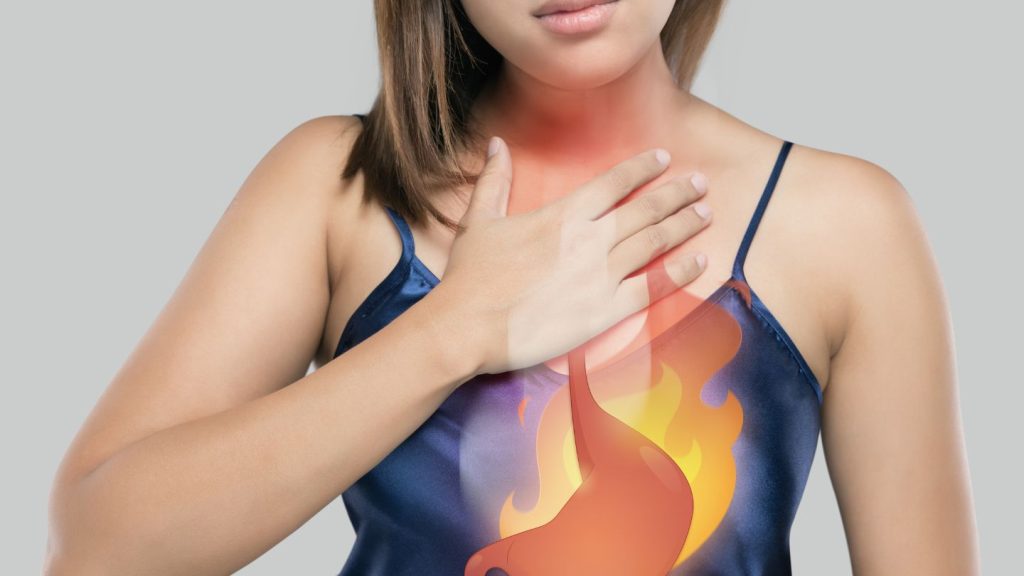
Acid Reflux After Gastric Sleeve: What You Should Know
For many patients, acid reflux after gastric sleeve surgery can become an unexpected complication during recovery. The gastric sleeve procedure reshapes the stomach into a smaller, tube-like structure, which can increase internal pressure and alter how acid moves through the digestive tract. When stomach acid frequently backs up into the esophagus, it leads to GERD after a gastric sleeve, also known as gastroesophageal reflux disease.
This condition doesn’t just cause discomfort; it can also interfere with healing and nutritional absorption. Understanding why reflux occurs is essential to managing symptoms effectively and preventing long-term damage to the esophagus.
Why Does Acid Reflux Happen After Gastric Sleeve?
Post-surgical anatomy plays a major role in the development of reflux. By reducing the stomach’s size, the surgery also changes the pressure dynamics between the stomach and the lower esophageal sphincter (LES). A weakened or tight LES may allow acid to escape upward. Additionally, if a hiatal hernia is present, it can make acid reflux after VSG surgery more frequent and severe.
Other contributing factors include:
- Increased intragastric pressure due to smaller stomach capacity
- Overeating or eating too quickly
- Lying down immediately after meals
- Reduced production of stomach hormones that regulate digestion
For patients who’ve undergone weight loss surgery, reflux dynamics can change. Exploring the link between acid reflux and gastric bypass reveals how anatomical alterations may reduce, or sometimes exacerbate, reflux depending on surgical technique and patient behavior.
Many studies show that up to 30–50% of sleeve patients experience some level of reflux following surgery, making early recognition and intervention critical.
Recognizing the Signs of Acid Reflux After Gastric Sleeve
Identifying signs of acid reflux after a gastric sleeve early can prevent the condition from worsening. Common symptoms include:
- Persistent heartburn or burning sensation in the chest
- Regurgitation of food or sour liquid
- Difficulty swallowing or a sensation of a lump in the throat
- Chronic cough, hoarseness, or sore throat
- Chest discomfort, especially at night
When flare-ups strike, knowing how long heartburn lasts helps manage expectations. Mild irritation may resolve in a few hours, but persistent burning often signals chronic GERD, which demands a tailored treatment plan.
Anxiety and acid reflux often go hand in hand. Stress can tighten the diaphragm and increase stomach acid production, worsening symptoms. Recognizing the connection between anxiety and acid reflux is essential: treating only the physical symptoms may not suffice unless emotional triggers are also addressed.
If these symptoms appear regularly, patients should seek professional evaluation. Uncontrolled reflux can lead to inflammation, scarring, and even Barrett’s esophagus, a precancerous condition linked to long-term GERD.
How to Treat GERD After Gastric Sleeve Surgery

Managing GERD after gastric sleeve requires a multifaceted approach that combines lifestyle modification, medical therapy, and in some cases, surgical intervention. Here are the most effective strategies for symptom control.
Lifestyle and Behavioral Modifications
- Eat smaller, more frequent meals to minimize stomach pressure
- Avoid lying down for at least two hours after eating
- Elevate your head during sleep to prevent nighttime reflux
- Limit caffeine, chocolate, citrus fruits, spicy foods, and carbonated drinks
- Maintain a healthy weight to reduce abdominal pressure
Adopting these habits can significantly minimize the frequency and severity of reflux episodes.
Dietary Adjustments
Choosing what to eat with acid reflux brings daily relief. Opting for mild, soothing foods like oatmeal, bananas, lean proteins, and steamed vegetables can reduce acid burden and ease irritation. Avoiding spicy, fatty, and acidic foods further protects your esophagus.
Sample one-day meal plan:
- Breakfast: Scrambled eggs with spinach and oatmeal
- Lunch: Grilled chicken breast with steamed vegetables
- Snack: Greek yogurt or low-acid fruit
- Dinner: Baked fish with quinoa and green beans
Avoid eating large meals or consuming food close to bedtime. Overeating, even healthy foods, can trigger reflux by overfilling the smaller stomach pouch.
Medical Treatments
Patients often need medications to manage acid reflux after a gastric sleeve procedure effectively. Common treatments include:
- Proton Pump Inhibitors (PPIs): Reduce acid production and promote healing of the esophagus
- H2 Blockers: Help control nighttime acid levels
- Antacids: Provide immediate relief from occasional heartburn
For persistent symptoms, diagnostic tests such as endoscopy or pH monitoring help determine the extent of reflux damage.
Advanced Interventions for Severe Reflux
If medications and lifestyle changes don’t resolve acid reflux after VSG surgery, revision procedures may be considered. Converting a gastric sleeve to a gastric bypass can relieve reflux in patients with severe GERD, as the bypass reroutes bile and reduces acid exposure to the esophagus.
When considering surgical solutions, many ask: What are the advantages of gastric sleeve surgery? Benefits often include reduced hunger, faster weight loss, fewer complications compared to more complex procedures, and metabolic improvements for comorbid conditions.
Additionally, repairing a hiatal hernia, if present, often brings significant relief. These surgical interventions should always be discussed with a bariatric specialist who can evaluate the underlying cause and recommend the safest course of action.
Managing Related Digestive Changes After Surgery
Post-surgery, new challenges emerge. One common issue is gas after gastric sleeve. Basic tips for reducing gas include eating slowly, avoiding carbonated drinks, limiting fibrous veggies initially, and staying upright after meals. Gradual adaptation and diet awareness go a long way in minimizing discomfort.
When to Seek Professional Help

Persistent reflux after surgery isn’t something to ignore. Seek medical attention if you experience:
- Frequent heartburn that disrupts sleep or daily life
- Chest pain or difficulty swallowing
- Symptoms that don’t improve with over-the-counter medications
- Nausea, vomiting, or unexplained weight loss
Chronic GERD after gastric sleeve can damage the esophagus and impact long-term digestive health. Early diagnosis leads to more effective treatment and faster recovery.
Living Comfortably After Bariatric Surgery
Managing reflux requires consistency and professional oversight. Patients who make dietary changes, stay physically active, and follow post-surgery instructions typically regain comfort and quality of life. While mild reflux may resolve over time, ongoing monitoring ensures it doesn’t evolve into a chronic condition.
Final Thoughts
While acid reflux after a gastric sleeve can be distressing, it’s a common and manageable condition with the right care plan. Combining proper diet, medical treatment, and regular follow-ups helps patients maintain long-term digestive wellness.
For specialized evaluation for gastric sleeve in Maryland and advanced treatment, contact Ascension Saint Agnes through our website to explore personalized solutions that support your recovery and comfort.
Frequently Asked Questions
Why does acid reflux occur after gastric sleeve surgery?
The gastric sleeve reshapes the stomach into a smaller, tube-like structure that increases internal pressure. This change, combined with a weakened lower esophageal sphincter or a hiatal hernia, can cause acid to move upward into the esophagus, leading to reflux.
How common is reflux after gastric sleeve surgery?
Studies show that 30–50% of patients may experience some level of reflux following gastric sleeve surgery. Symptoms vary in intensity and often improve with dietary changes, medication, or in some cases, surgical correction.
What are the symptoms of acid reflux after a gastric sleeve?
Common symptoms include burning in the chest, regurgitation, sore throat, hoarseness, or chronic cough. Some patients also report difficulty swallowing or nighttime chest discomfort. A bariatric specialist should evaluate persistent symptoms.
How is acid reflux treated after a gastric sleeve?
Treatment includes lifestyle modifications such as eating smaller meals, avoiding trigger foods, and elevating the head during sleep. Medications like proton pump inhibitors or H2 blockers help reduce acid production. Severe cases may require revision surgery or hiatal hernia repair.